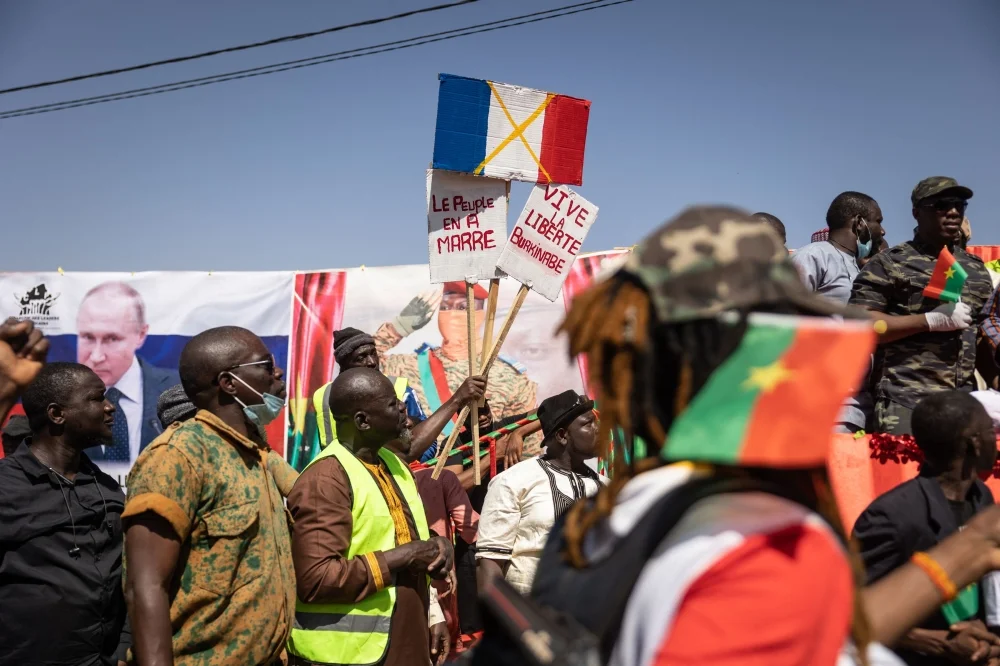Hundreds of demonstrators gathered in Ouagadougou’s central square on January 20, 2023, calling for the expulsion of France’s ambassador and the closure of a French military base in Burkina Faso. Carrying placards with slogans like “French army, get out”, the protesters expressed support for junta leader Captain Ibrahim Traore and advocated for stronger ties with Russia. This rally reflects escalating anti-French sentiment in the West African nation, amid a jihadist insurgency that has killed thousands and displaced millions since 2015.
Protests Amid Deteriorating Relations
The demonstration, organized by a pan-African movement, highlighted Burkina Faso’s shifting alliances. “We want cooperation between Burkina Faso and Russia,” said Mohamed Sinon, a key leader, emphasizing support for Traore and the security forces battling jihadists. Protesters displayed banners featuring Russian President Vladimir Putin alongside leaders from Mali and Guinea, both under junta rule following coups. This event follows a pattern of anti-French actions, including attacks on France’s embassy and cultural center in October and November 2022.
France maintains 400 special forces in Burkina Faso to combat the insurgency, but relations have soured since Traore’s September 2022 coup—the second in eight months. The junta has prioritized rekindling ties with Russia, echoing Mali’s pivot after expelling French troops in 2022. France fears a similar fallout, with tensions peaking when Burkina Faso requested the replacement of Ambassador Luc Hallade in early January 2023 after his reports on the worsening security situation.
Jihadist Insurgency and Humanitarian Crisis
Burkina Faso has been grappling with a jihadist insurgency since 2015, with cross-border raids from Mali leading to thousands of deaths and displacing around two million people. Over a third of the country remains outside government control, exacerbating the humanitarian crisis. The violence has fueled discontent with French involvement, perceived as ineffective by many Burkinabe.
The rally’s call for Russian cooperation comes as Burkina Faso seeks alternative partners. Russia’s Wagner Group has expanded in the Sahel, providing military support in Mali, and similar arrangements are speculated for Burkina Faso. “People are determined to confront them,” Traore said in a separate address, referring to jihadists, but the protests indicate a desire for new alliances to address the security vacuum.
Regional Context and International Implications
Burkina Faso’s unrest mirrors a regional trend in the Sahel, where coups in Mali (2020, 2021) and Guinea (2021) have led to anti-French sentiments and closer Russian ties. France’s Operation Barkhane, aimed at countering jihadists, withdrew from Mali in 2022 amid accusations of neocolonialism. Burkina Faso’s junta has similarly distanced itself from France, with Deputy Foreign Minister Chrysoula Zacharopoulou visiting in January 2023 to affirm respect for Burkina’s sovereignty: “No-one can dictate Burkina’s choices.”
In Nigeria, facing economic challenges like 52.2% inflation in 2023, Burkina Faso’s protests resonate as a call for self-determination, mirroring cultural pride in Nollywood’s global reach.
A Path Forward
As Burkina Faso navigates its security and diplomatic challenges, the protests underscore the junta’s popularity among pan-Africanists but also highlight the urgent need for effective counter-insurgency strategies. With thousands killed and millions displaced, the country’s future hinges on balancing international partnerships with domestic stability.






